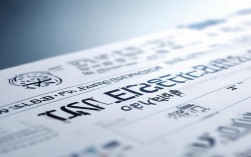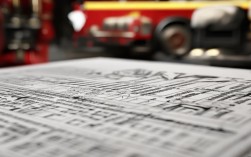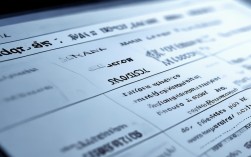下面我将为您详细解读证券从业资格考试的报名条件,包括入门资格考试和专项业务类资格考试。

入门资格考试(基础科目)
这是进入证券行业的必考科目,所有从业人员都需要通过。
《证券市场基本法律法规》和《金融市场基础知识》
报名条件(通用):
-
国籍要求:
- 报名截止日年满18周岁。
- 具有完全民事行为能力。
-
学历与专业要求:
- 具有高中或相当于高中以上文化程度。
- 这里的“高中”通常指高中、中专、职高、技校等同等学历,大专、本科及以上学历的考生自然符合要求。
-
品行要求:
- 品行端正,具有良好的职业道德。
- 没有被中国证监会采取证券市场禁入措施,或禁入期已届满。
- 不存在《中华人民共和国证券法》第一百零八条规定的情形(如因违法行为被解除职务的证券发行人的董事、监事、高级管理人员,自被解除职务之日起未逾五年等)。
总结一下入门资格考试的核心条件: 年满18周岁 + 高中/中专及以上学历 + 完全民事行为能力。
专项业务类资格考试(“保代”、“分析师”、“投资顾问”)
在通过入门资格考试的基础上,根据不同岗位需求,还需要参加专项业务类资格考试。
证券投资顾问胜任能力考试
- 适用岗位:为客户提供证券投资顾问服务的从业人员。
- 报名条件:
- 已取得从业资格:一般要求通过入门资格考试,即《证券市场基本法律法规》和《金融市场基础知识》。
- 学历与工作经历:
- 本科及以上学历。
- 具有1年以上证券业务或其他证券服务业务(如投资咨询、财务顾问等)的工作经历。
- 品行要求:与入门考试要求一致,品行良好,无不良记录。
证券分析师胜任能力考试
- 适用岗位:从事发布证券研究报告业务的从业人员。
- 报名条件:
- 已取得从业资格:通过入门资格考试。
- 学历与工作经历:
- 本科及以上学历。
- 从事证券业务或证券服务业务 1年以上。
- 品行要求:与入门考试要求一致。
保荐代表人胜任能力考试
- 适用岗位:在主板、创业板、科创板等板块从事证券发行保荐业务的从业人员,这是要求最高、难度最大的考试。
- 报名条件:
- 已取得从业资格:通过入门资格考试。
- 机构推荐:所在证券公司、证券金融公司推荐,个人无法直接报名,必须由任职机构统一报名。
- 学历与工作经历:
- 硕士及以上学历。
- 从事证券发行承销、并购重组等投资银行业务 2年以上。
- 品行要求:品行端正,诚实守信,3年 没有受到中国证监会的行政处罚,5年 没有受到证券交易所的公开谴责或中国证券业协会的纪律处分。
重要注意事项
-
在校生可以报名吗?
- 可以,只要满足“年满18周岁”和“高中/中专及以上学历”的条件,在校的大学生(大专、本科在读)就可以报名参加入门资格考试,很多学生会选择在毕业前就考取证书,为就业做准备。
-
专业有要求吗?
- 没有专业限制,无论你是金融、会计、法律专业,还是计算机、中文、历史等专业,只要满足学历要求,都可以报名。
-
报名流程是怎样的?
- 报名通常采用网上报名的方式,考生需要登录中国证券业协会官网的“从业人员”栏目,找到报名入口,按照提示填写个人信息、上传照片、选择考试科目和城市,并完成在线缴费。
-
考试科目和题型?
- 入门资格考试:两科,均为选择题(包括50道单选和50道多选),满分100分,60分及格。
- 专项业务类考试:一科,同样为选择题(60道单选和40道多选),满分100分,60分及格。
-
成绩有效期?
- 入门资格考试:单科成绩长期有效,考生可以同时报考两科,也可以分开报考,两科都通过后,即可获得《证券从业资格》。
- 专项业务类资格考试:单科成绩长期有效,通过一门即可获得相应的执业证书资格。
总结表格
| 考试类别 | 考试科目 | 核心报名条件 | 证书/资格 |
|---|---|---|---|
| 入门资格考试 | 《证券市场基本法律法规》 《金融市场基础知识》 |
年满18周岁 高中/中专及以上学历 完全民事行为能力 |
证券从业资格 |
| 专项业务类考试 | 《证券投资顾问胜任能力》 | 已取得从业资格 本科及以上学历 1年以上相关工作经验 |
证券投资顾问资格 |
| 《证券分析师胜任能力》 | 已取得从业资格 本科及以上学历 1年以上相关工作经验 |
证券分析师资格 | |
| 《保荐代表人胜任能力》 | 已取得从业资格 硕士及以上学历 2年以上投行相关工作经验 机构推荐 |
保荐代表人资格 |
希望这份详细的解读能帮助您全面了解证券管理类资格考试的报名条件!如果您有其他疑问,可以随时追问。











